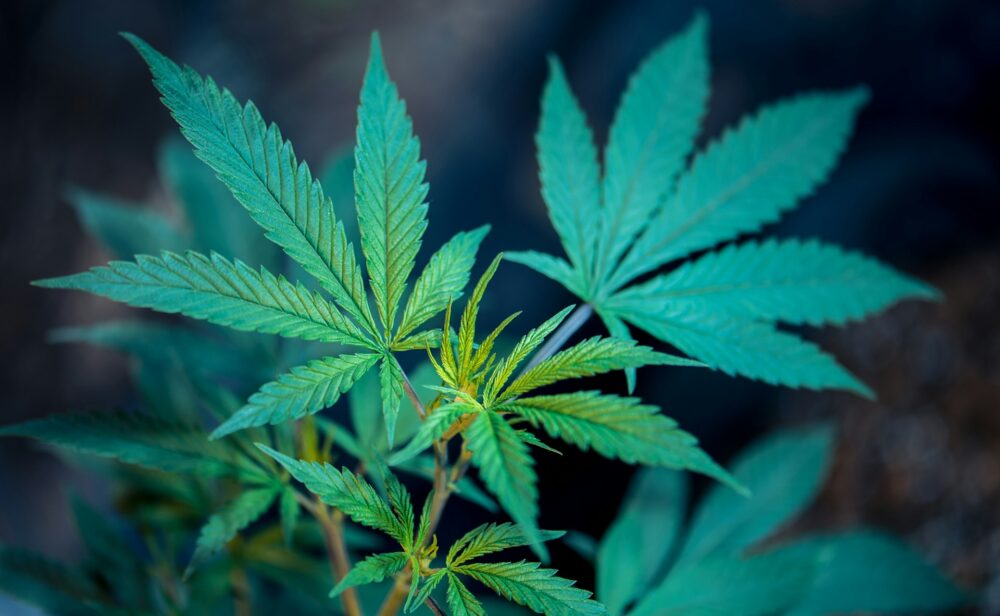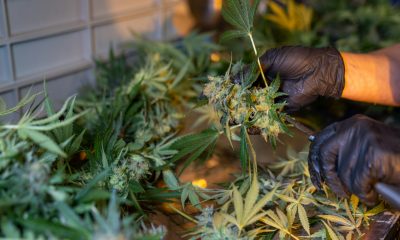Cannabis
Germany: Applications to Set Up Cannabis Clubs Have Increased by 250% Since July
Germany’s legalization of cannabis clubs has led to a surge in applications, tripling from 67 in July to 226 in early August. However, bureaucratic hurdles and regional disparities have complicated the process. In Berlin and Bavaria, regulatory confusion and strict requirements have delayed approvals, highlighting the challenges faced by those looking to establish cannabis clubs.

The number of applications to establish newly legalized cannabis cultivation associations, or “cannabis clubs,” in Germany has increased significantly over the past month. So far, 226 applications have been submitted in each German state, an increase of almost 250% compared to the figures published in early January.
In Germany, applications for membership in cannabis clubs have also been growing for months under newly adopted regulations. But what is driving this growth? And what can stop it?
German Cannabis Clubs – New Hope, New Challenges
Cannabis cultivation inside a cannabis club in Germany, showing rows of healthy, green cannabis plants under grow lights in a clean and well-maintained environment, with a professional hydroponic system and people caring for the plants.
When Germany opened the door to legalizing the cultivation and consumption of cannabis in so-called “social clubs” on April 1, the possibility of creating a safe space for cannabis enthusiasts who wanted to legally and responsibly use the plant was met with enthusiasm from the public. The reality, however, turned out to be a bit more complicated.
In recent months, the number of applications to establish cannabis clubs has almost tripled. In July, there were only 67 applications, while at the beginning of August, the number was already 226. On the one hand, this is evidence of the huge demand for such initiatives, but on the other, it exposes the many difficulties that future members of these clubs encounter.
Bureaucratic mazes and regional inequalities
While the idea of cannabis clubs raises hopes of normalizing and regulating cannabis consumption, German bureaucracy and regulatory diversity across federal states show that this is not a bed of roses. For example, in Lower Saxony, one of the fastest growing regions in terms of applications, only eight licenses have been granted so far. This is a mere drop in the ocean, and each subsequent permit seems to have been bought with months of effort and uncertainty.
In Berlin, a city that should theoretically be a forerunner of change and liberalism, prospective cannabis club members hit an administrative wall. City officials couldn’t agree on who should actually issue licenses—the Senate or local health offices. As a result, for several weeks no one knew how to handle the incoming applications.
Only recently has it been agreed that Lageso (the State Office for Health and Social Affairs) will be responsible for approving applications for cannabis clubs, with local offices taking over control duties. However, the uncertainty that has dominated the application process means that Berliners like Klaus Madzia of Cannovum Cannabis AG are very wary of the subject.
Bavaria, known for its restrictive approach to many issues, including cannabis, also doesn’t make life easier for potential cannabis club owners. Here, the regulations are stricter and the application process even more complex. Mandatory youth protection and addiction prevention courses, which won’t start until September 2024, effectively delay the procedures. In practice, this means that future club owners must arm themselves with patience.
Light at the end of the tunnel: Lower Saxony and the cooperation model
Despite bureaucratic obstacles, there are also regions where things are moving forward. Lower Saxony, where eight licenses for cannabis clubs have been granted so far, could become a model to follow. Klaus Madzia emphasizes that cooperation with the agricultural sector is a key element of success. Hemp clubs that establish cooperation with plant cultivation experts gain not only valuable know-how, but also respect in the eyes of regulators.
This cooperation is not limited to technical assistance in hemp cultivation. Thanks to the involvement of farmers, clubs also gain access to land and infrastructure adapted for cultivation, which is crucial in the case of hemp. As Madzia notes, you can’t just convert an old garage into a greenhouse – local authorities will certainly not allow it. Partnership with experienced farmers not only facilitates access to appropriate resources, but also adds seriousness and professionalism to the entire undertaking.
__
(Featured image by Roberto Valdivia via Unsplash)
DISCLAIMER: This article was written by a third party contributor and does not reflect the opinion of Born2Invest, its management, staff or its associates. Please review our disclaimer for more information.
This article may include forward-looking statements. These forward-looking statements generally are identified by the words “believe,” “project,” “estimate,” “become,” “plan,” “will,” and similar expressions. These forward-looking statements involve known and unknown risks as well as uncertainties, including those discussed in the following cautionary statements and elsewhere in this article and on this site. Although the Company may believe that its expectations are based on reasonable assumptions, the actual results that the Company may achieve may differ materially from any forward-looking statements, which reflect the opinions of the management of the Company only as of the date hereof. Additionally, please make sure to read these important disclosures.
First published in Fakty Konopne. A third-party contributor translated and adapted the article from the original. In case of discrepancy, the original will prevail.
Although we made reasonable efforts to provide accurate translations, some parts may be incorrect. Born2Invest assumes no responsibility for errors, omissions or ambiguities in the translations provided on this website. Any person or entity relying on translated content does so at their own risk. Born2Invest is not responsible for losses caused by such reliance on the accuracy or reliability of translated information. If you wish to report an error or inaccuracy in the translation, we encourage you to contact us

-

 Markets2 weeks ago
Markets2 weeks agoMarkets, Jobs, and Precious Metals Show Volatility Amid Uncertainty
-

 Crypto4 days ago
Crypto4 days agoEthereum Outlook: Key $2,190 Resistance, Whale Accumulation, and Buterin’s Push for True DeFi
-

 Cannabis2 weeks ago
Cannabis2 weeks agoAI Can Mimic Psychedelic Experiences but Cannot Truly Feel Them, Study Warns
-

 Crowdfunding7 days ago
Crowdfunding7 days agoBSG Stahl Riesa Launches Crowdfunding for New Floodlights

























